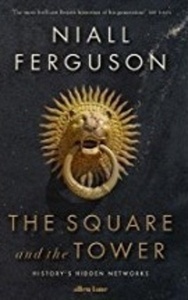The Square and the Tower : Networks, Hierarchies and the Struggle for Global Power

Editorial Penguin Books Ltd
Fecha de edición octubre 2017 · Edición nº 1
Idioma inglés
EAN 9780241298985
576 páginas
Libro
encuadernado en tapa blanda
Resumen del libro
Historians love to write about rulers--kings, emperors, presidents--or about vast social forces--migration, industrialisation--but what if they are all missing the point? Thinking about our own lives, isn't it clear that what makes the world go round are families, colleagues, teams, associations: in other words, networks? Many old Italian towns have the same central structure: a large square where people gather and a tower where the town's elite ruled from. Throughout history you can express the battle between the two as a battle of networks - who knows who, who works with who: guilds, families, fellowships, clans, cabals all cooperating to make sometimes huge changes. Sometimes the power lies with those lurking in the tower and sometimes with those in the square.
Access to information, to credit, to ideas, to news - all constantly shift. Whether in the Renaissance or in the present day what makes the world work is an astonishing tangle of networks - and this was as true for the effort that went into discovering the New World as it is now for fighting elections or just talking to friends online.In his enormously enjoyable new book, Niall Ferguson celebrates the myriad ways in which the battle between rival networks makes history happen.
Biografía del autor
P B Niall Ferguson /B ocupa la cátedra Lawrence A Tisch de Historia de la Universidad de Harvard y la cátedra Wiliam Ziegler en la Harvard Business School. Asimismo es profesor del Jesus College, de la Universidad de Oxford, y de la Hoover Institution, de la Universidad de Stanford. Considerado el historiador británico más brillante de la actualidad por el I Times /I y una de las cien personas más influyentes del mundo por la revista I Time /I , entre sus obras destacan I Coloso /I (Debate, 2005), I El Imperio Británico /I (Debate, 2005), I La guerra del mundo /I (Debate, 2007), I El triunfo del dinero /I (Debate, 2010) y I Civilización /I (Debate, 2012).<br>








